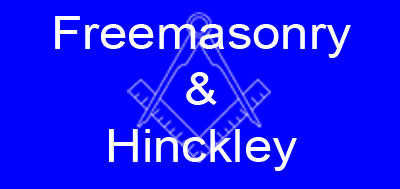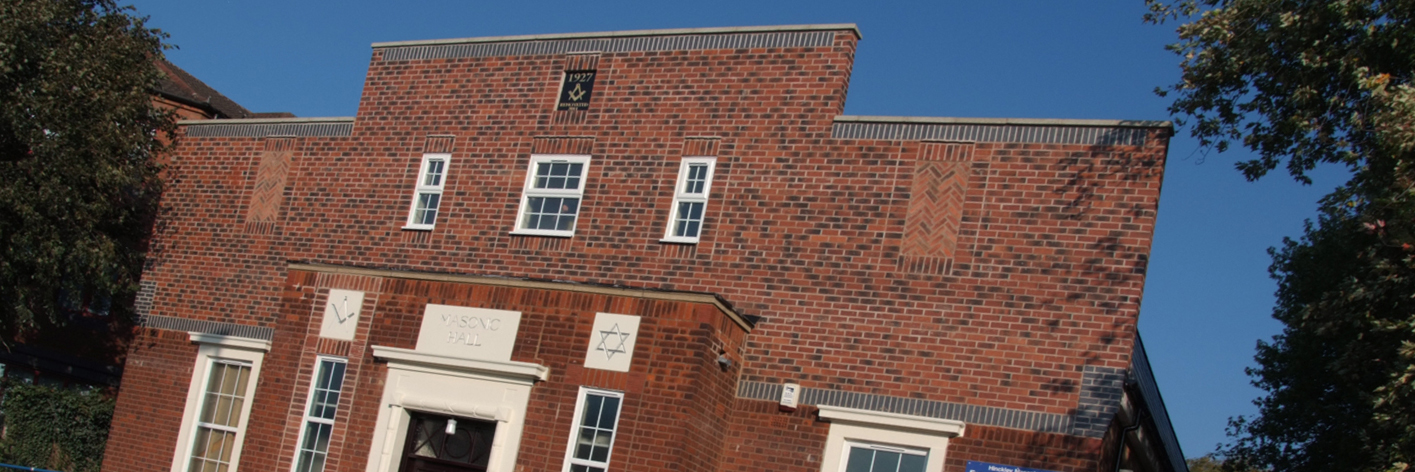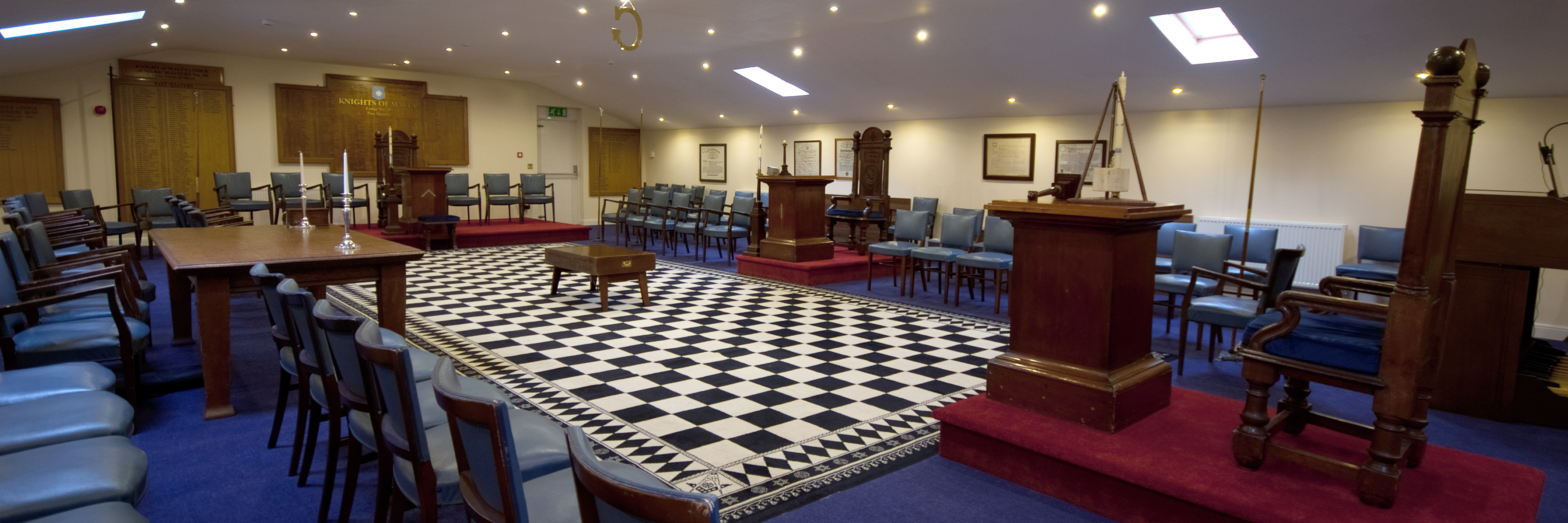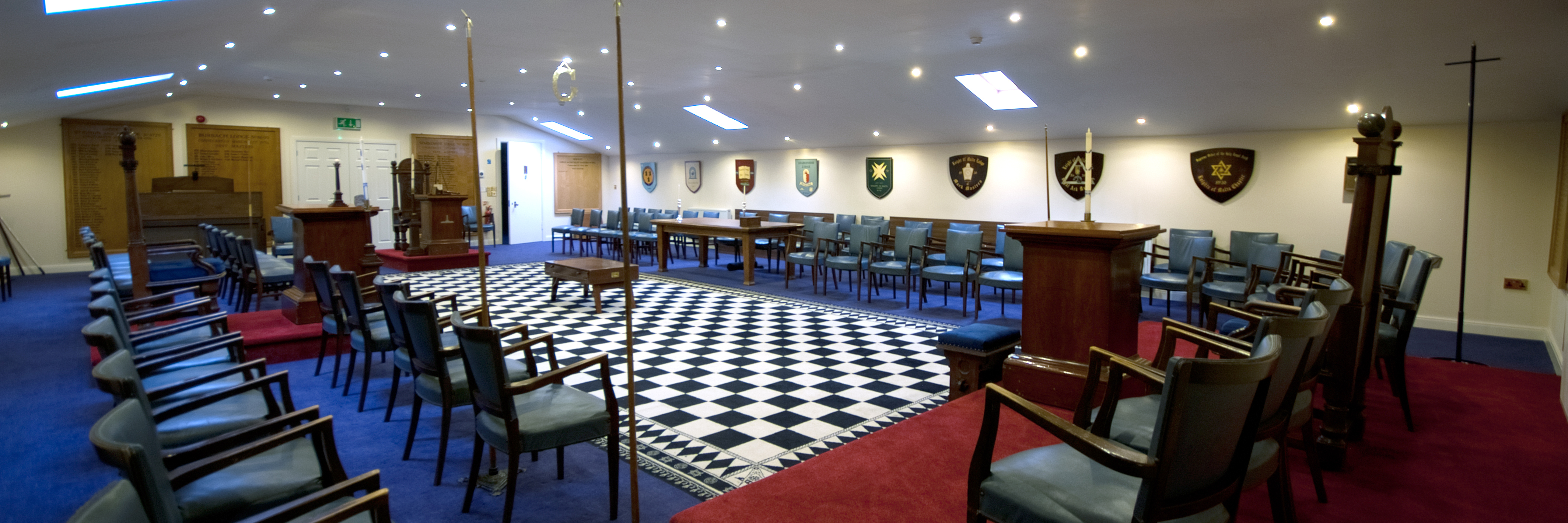What is Freemasonry?
Freemasonry is a society of men who are concerned with moral and spiritual values and encourages men to live better lives, to discipline themselves and to consider their relationship with others, based on the three great principles of Brotherly Love, Relief & Truth
Brotherly Love – to offer kindness and understanding to all fellow creatures and to show respect and tolerance for the opinions of others.
Relief – is the practice of charity both by charitable giving and voluntary works as individuals. Freemasonry has always been concerned with the care of orphans, the sick and the aged and the education of young people; this work continues to this day.
Truth – by striving for truth and high moral standards and aiming to achieve them in their own lives
Freemasonry explicitly and openly states that it is not a religion or a substitute for one. It requires that its candidates believe in a supreme being but the interpretation of this term is the subject to the conscience of the candidate. Consequently Freemasonry accepts men from all faiths.
History of Freemasonry
The origins of Freemasonry are unlikely to be established with any certainty but it is believed it emerged directly from the medieval guilds and lodges of the stonemasons who built the great cathedrals and castles of the 17th and 18th centuries. The earliest record is that of Elias Ashmole whose diary shows he was accepted into a Masonic lodge on 16th October 1646 in Warrington. Further important dates was the forming of the first Grand Lodge in June 1717 and the formation of the rival Atholl or Antient Grand Lodge in 1751 and finally the union of the Grand Lodges in 1813. Today the United Grand Lodge of England and Wales and throughout the world have over 250,000 members meeting in almost 8000 lodges
Membership
Freemasonry is open to men of all walks of life, of any race or religion, who believe in a Supreme Being. It has always actively encouraged its members to be active in their own religion.
Men wishing to become Freemasons must, with few be at least 21 years of age. They will need a proposer and seconder before an application may be submitted to a Lodge.
The proposal form requires a candidate for Freemasonry not to expect, anticipate or seek any preferment or financial benefit as a consequence of becoming a member. There should be no conflict between a candidate's family, business or professional interests and membership
Every member has the opportunity to take office in his Lodge and eventually to become its Master for a period of one year.
Becoming a Freemason
Becoming a Freemason will make a big difference to your life as the objectives of Freemasonry are to encourage its members to improve both as individuals and as members of society. The benefits of membership are tangible and are discovered in different ways, some enjoy the philosophy of Freemasonry, and some participate in the ceremonial parts of the meeting but all find great comfort in the friendship and warmth of the meetings and events. Freemasonry is not for everyone however and each lodge makes its own decisions about the men it admits as members and a candidate for membership must be proposed by two existing members of a lodge
Qualifications for membership are straightforward and are as follows:
You must be male
Over the age of 21
Believe in a supreme being
Never have been convicted by a court for an offence
Apply for membership voluntarily
Not to expect or anticipate or seek any financial benefit or preferment as a consequence of membership
How to Join a Lodge
If you already know a Freemason talk to him about Freemasonry he will be delighted to explain about the lodge and its meetings and the financial implications of membership and the commitment of time necessary to participate fully in the life of the lodge. If you do not know a Freemason use the Lodge Near Me finder on this application and follow the links to either the secretary of a specific lodge or talk to the secretary at the Provincial Headquarters who will advise on the route to membership



















